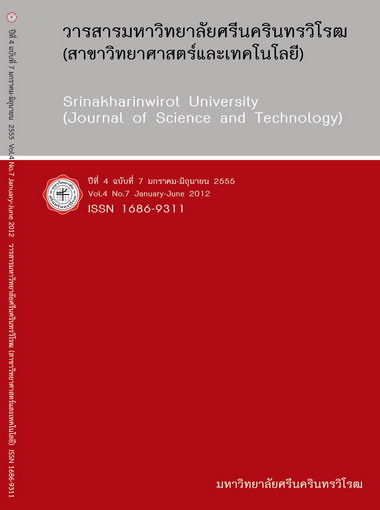นาฬิกาชีวภาพกับการนอนหลับ (BIOLOGICAL CLOCK AND SLEEP)
Keywords:
Biological clock, Sleep, The sleep-wake cycle, Circadian rhythmAbstract
บทคัดย่อวงจรการหลับ-ตื่นในร่างกายถูกควบคุมโดยนาฬิกาชีวภาพซึ่งตั้งอยู่ที่ suprachiasmatic nucleus (SCN) ของไฮโพทาลามัส เพื่อให้ทำงานสอดคล้องกับวงจรแห่งวันของธรรมชาติ เมื่อเรตินาได้รับแสงจะส่งสัญญาณไปยัง SCN เพื่อกระตุ้นให้ร่างกายตื่นในช่วงกลางวัน ส่วนการนอนหลับ ซึ่งเป็นกลไกพื้นฐานที่สำคัญต่อการรักษาภาวะธำรงดุลของร่างกายถูกกระตุ้นโดย melatonin ซึ่งเป็นฮอร์โมนที่ชักนำให้เกิดการนอนหลับสร้างขึ้นจากต่อมไพเนียลโดยจะหลั่งออกมาในช่วงกลางคืน การนอนหลับ มีบทบาทสำคัญต่อสุขภาพร่างกาย มีผลต่อการเรียนรู้ของสมอง ทำให้ร่างกายดำเนินกิจกรรมต่างๆ ได้อย่างมีประสิทธิภาพ และมีสภาวะอารมณ์ที่ดี ปัจจัยที่มีอิทธิพลต่อการเปลี่ยนแปลงของวงจรการหลับ-ตื่นที่สำคัญ ได้แก่ ปัจจัยทางสรีรวิทยา ปัจจัยทางสิ่งแวดล้อม และพฤติกรรมการใช้ชีวิตที่ไม่เหมาะสม ซึ่งล้วนทำให้วงจรการนอนหลับผิดปกติ
Abstract
The suprachiasmatic nucleus (SCN) of the hypothalamus is the circadian clock that drives sleep-wake cycle synchronized to circadian rhythm. It receives photic input from the retina and promotes wakefulness during the day. Sleep, the basic physiological drive homeostasis, activated by melatonin, a sleep inducing hormone produced by the pineal gland during the night. It plays a large role in maintaining health, promoting learning, performing at top proficiency, and sustaining emotional well-being. Factors influencing the sleep-wake cycles include physiological and environmental factors, and maladaptive behaviors often play an important role in the development of the circadian rhythm sleep disorders.
Downloads
Downloads
Published
How to Cite
Issue
Section
License
Srinakharinwirot University Journal of Sciences and Technology is licensed Under a Creative Commons Attribution-NonCommercial-NoDerivs 4.0 International (CC-BY-NC-ND 4.0) License, Unless Otherwise Stated. Please Read Journal Policies Page for More Information on Open Access, Copyright and Permissions.



